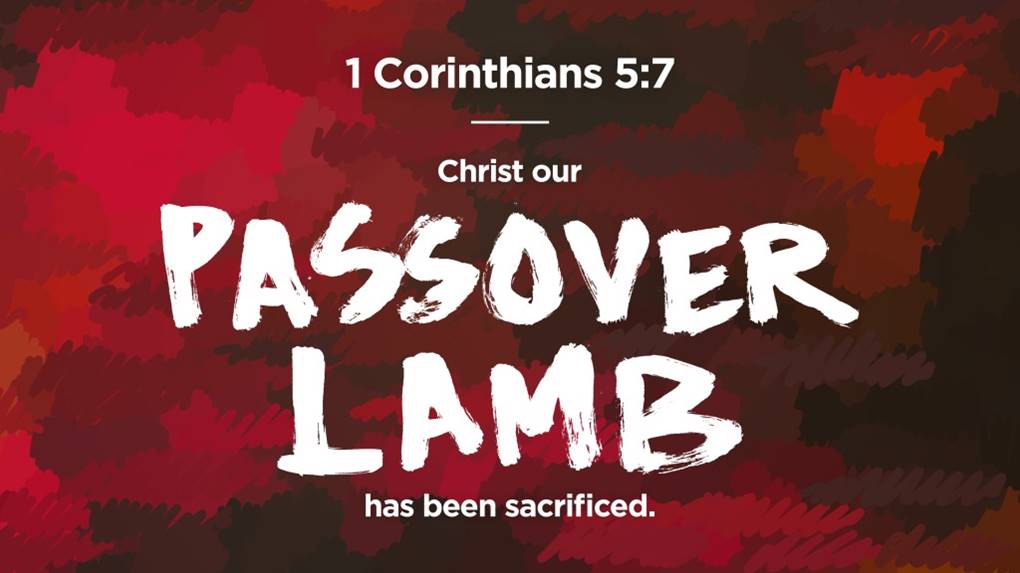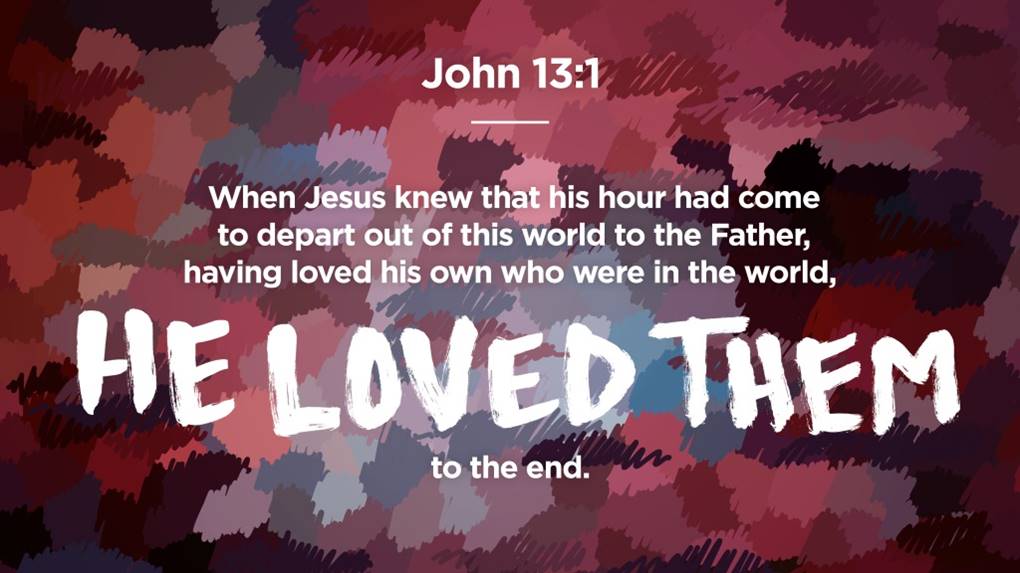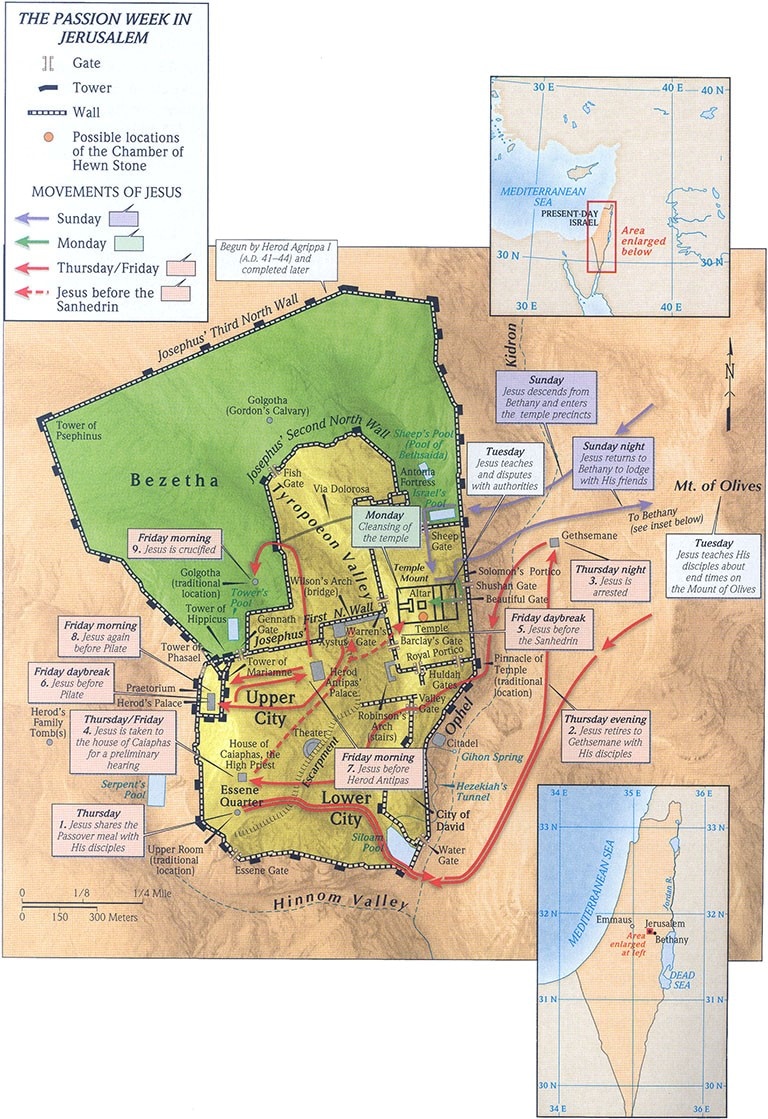
Mark doesn’t dwell on the crucifixion. He states it very simply. He simply says “they crucified him,” and then he moves on. It’s not the crucifixion that is of ultimate importance for Mark’s Gospel. It’s the fact that Jesus is giving His life as an atonement for sins. This is a sacrifice of atonement. The worst suffering of Jesus on the cross is almost certainly not the crucifixion. It was when the Father poured out the sins of the world on Him. So Mark doesn’t dwell on the torture. He focuses on the fact that Jesus has given Himself as a sacrifice for sins [and the] simplicity of the crucifixion account.
Under Roman law the release of a crucified man’s corpse for burial was determined only by the imperial magistrate. Usually such a request by a victim’s relatives was granted, but sometimes a body would be left on a cross to decay or be eaten by predatory animals or birds and the remains were thrown into a common grave. Jewish law required a proper burial for all bodies, even those of executed criminals. It also dictated that those hanged were to be taken down and buried before sunset (cf. Deut. 21:23).
Aware of these regulations, Joseph of Arimathea went to Pilate and requested Jesus’ body for burial. He did this as evening approached (“when evening had already arrived,” probably about 4 P.M.). This gave urgency to his intended action. Though Joseph probably lived in Jerusalem he was originally from Arimathea, a village 20 miles northwest of the city. He was a wealthy (Matt. 27:57), reputable member of the Council, a non-Jewish designation for the Sanhedrin. He had not approved of the Sanhedrin’s decision to kill Jesus (Luke 23:51). He was personally waiting for the kingdom of God (cf. Mark 1:15) which suggests he was a devout Pharisee. He regarded Jesus as the Messiah though so far he was a secret disciple (John 19:38). But he took courage and went to Pilate boldly, a description unique to Mark. His action was bold because: (a) he was not related to Jesus; (b) his request was a favor that would likely be denied on principle since Jesus had been executed for treason; (c) he risked ceremonial defilement in handling a dead body; (d) his request amounted to an open confession of personal loyalty to the crucified Jesus which would doubtless incur his associates’ hostility. He was a secret disciple no longer—something Mark impressed on his readers. Fitzpatrick, Elyse et al. NT156 Understanding Easter: The Significance of the Resurrection. Bellingham, WA: Lexham Press, 2016. Print. Grassmick, John D. “Mark.” The Bible Knowledge Commentary: An Exposition of the Scriptures. Ed. J. F. Walvoord and R. B. Zuck. Vol. 2. Wheaton, IL: Victor Books, 1985. 191. Print.  “Maundy Thursday,” the Thursday before Easter, is the celebration of the original observance of the Lord’s Supper. It is also known as Holy Thursday. It is rooted in the biblical accounts of Jesus’ celebration of the Passover Meal and the institution of communion with his disciples. From John 13, after He had washed His disciples’ feet, He said, “So now I am giving you a new commandment: Love each other. Just as I have loved you, you should love each other” (John 13:34). Gregg, D. Larry. “Maundy Thursday.” Ed. David Noel Freedman, Allen C. Myers, and Astrid B. Beck. Eerdmans dictionary of the Bible 2000 : 874. Print. Tan, Paul Lee. Encyclopedia of 7700 Illustrations: Signs of the Times. Garland, TX: Bible Communications, Inc., 1996. Print. The week prior to Easter Sunday in which the church remembers the death and resurrection of Christ is traditionally called Holy Week. As the observance of the Easter festival developed over the first few centuries, the week prior to Easter Sunday began to take on special significance for the early church. In the early centuries, Easter Sunday celebrations included remembrance of both the crucifixion and the resurrection. By about 500, Good Friday came to be the focus of the remembrance of the crucifixion.
Grissom Fred A. “Holy Week.” Ed. Chad Brand et al. Holman Illustrated Bible Dictionary. 2003: 775. Print.
As referenced in this mornings sermon, here is a very powerful and eye opening message given by Ken Ham regarding the spiritual collapse in America. May we seek after the Holy and Humble Christ Jesus in all that we do!
|
Eric MarshallBorn in Reading, Pennsylvania, Eric grew up in the little town of Gibraltar, PA with his grandparents. He met his wife Cheryl while working at Good’s Greenhouse in Bowmansville, PA. He has three adult children and values watching them grow into the people God wants them to be. Archives
August 2023
Categories |






 RSS Feed
RSS Feed